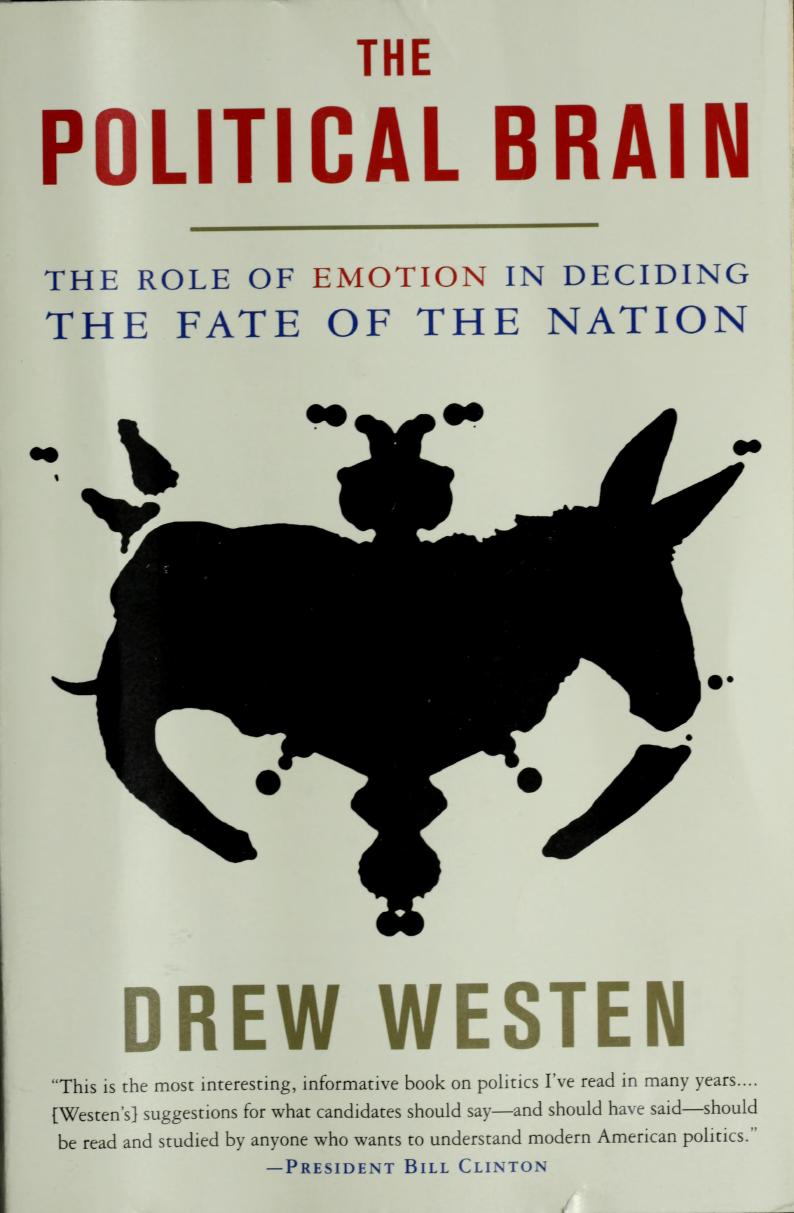The Political Brain by Drew Westen

Author:Drew Westen
Language: eng
Format: epub, pdf
Publisher: Perseus
Published: 2010-10-21T16:00:00+00:00
The Truth Will Set You Free
The worst thing you can do when the other side is sending racist appeals under the cover of darkness is to leave the light off. Doing so lets these appeals resonate with the darkest of people’s unconscious networks. Because these networks are generally opaque to voters’ consciousness, what they become aware of, instead, are their emotionally acceptable derivatives in consciousness: the issues to which such networks can attach themselves and provide emotional energy, such as outrage at welfare recipients with six kids, people getting “special privileges,” or immigrants being given “amnesty” for “breaking the law.”
How, then, can Democrats tell coherent narratives about issues such as affirmative action and poverty that might resonate with a public divided within itself? What messages will resonate with voters’ conscious values while inhibiting deeply held sentiments most people wish weren’t on their own psychic soil?
There are two truths embedded in our unconscious networks that Democrats need to tell the American people. If they want to tell an emotionally resonant story, they will need to tell them both together.
The first truth is that despite our conscious values, most of us are prejudiced in ways we can only see through a glass darkly. If we tell this truth in a highly personal, emotionally evocative way, most people will hear it, particularly if we make clear this is about us, not about them. If we frame the problem as a conflict between what most of us consciously value and what we unwittingly find under our skin, most people would be willing to acknowledge that they’ve had a few thoughts they’d rather not show on their faces—or that they may have shown without knowing it. This wouldn’t be such a bitter pill for most Americans to swallow if Democratic leaders take it with them, if they don’t stand in judgment. It’s not that most people want to be racist anymore. It’s that three hundred years of history just aren’t erased in a few generations.
That’s not a complicated message to convey.
But there’s a second truth that needs to be told, or many people will immediately discount the first. And that second truth is about some of those conscious beliefs and unconscious associations that aren’t just right-wing propaganda or prejudice. They are associations born of experience. We fail as a party and as a nation when we deny those truths rather than turning moral problems into moral imperatives. Paradoxically, if Democrats were just to acknowledge the legitimate concerns of conservatives—concerns about violence, drugs, absent fathers, and teenage mothers—they could turn conservatives’ descriptions of these problems into a prescription for change and their callous indifference into a moral problem. Acknowledging what is wrong in our inner cites—and in many parts of rural America, where poverty and its attendant social problems are just as devastating to children, whether white or black—and making it our national calling to do something about it, would appeal to the values of many in the political center. It would also appeal to many
Download
This site does not store any files on its server. We only index and link to content provided by other sites. Please contact the content providers to delete copyright contents if any and email us, we'll remove relevant links or contents immediately.
| Anthropology | Archaeology |
| Philosophy | Politics & Government |
| Social Sciences | Sociology |
| Women's Studies |
The Secret History by Donna Tartt(18998)
The Social Justice Warrior Handbook by Lisa De Pasquale(12177)
Thirteen Reasons Why by Jay Asher(8873)
This Is How You Lose Her by Junot Diaz(6855)
Weapons of Math Destruction by Cathy O'Neil(6248)
Zero to One by Peter Thiel(5764)
Beartown by Fredrik Backman(5708)
The Myth of the Strong Leader by Archie Brown(5481)
The Fire Next Time by James Baldwin(5409)
How Democracies Die by Steven Levitsky & Daniel Ziblatt(5200)
Promise Me, Dad by Joe Biden(5128)
Stone's Rules by Roger Stone(5065)
A Higher Loyalty: Truth, Lies, and Leadership by James Comey(4937)
100 Deadly Skills by Clint Emerson(4899)
Rise and Kill First by Ronen Bergman(4758)
Secrecy World by Jake Bernstein(4727)
The David Icke Guide to the Global Conspiracy (and how to end it) by David Icke(4684)
The Farm by Tom Rob Smith(4485)
The Doomsday Machine by Daniel Ellsberg(4473)
